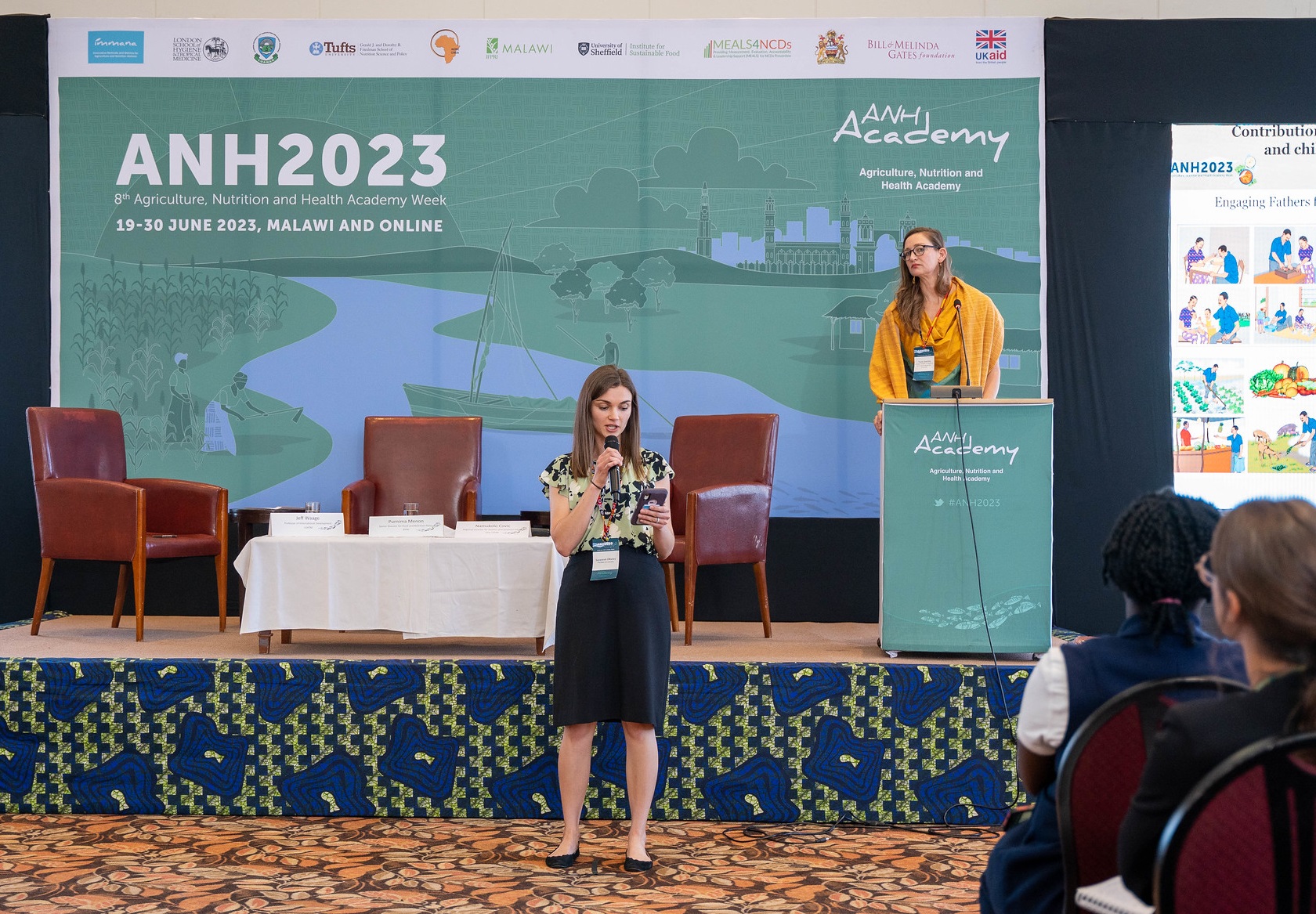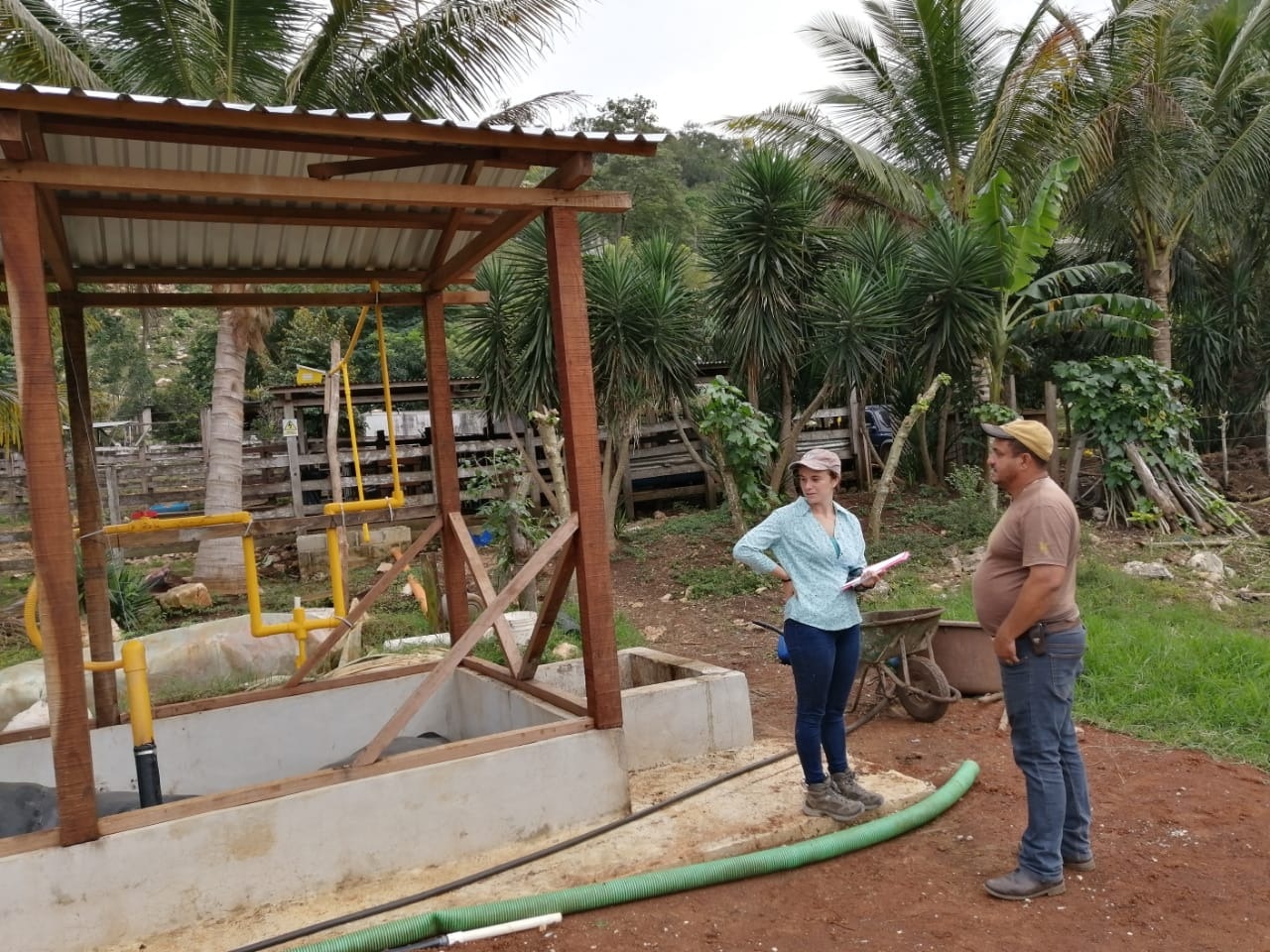Keeping up with the 2023 recipients of the D. Woods Memorial Fund
The D. Woods Thomas Memorial Fund to Support International Studies was established in the name of D. Woods Thomas, former Dean of International Programs in Agriculture in 1993. The endowment supports graduate students who will be conducting research or studying in a developing country as part of their graduate program. The intent of the award is to help increase the capacity of young American scientists to contribute to international agricultural development.
In 2023, three graduate students were awarded the D. Woods Thomas Scholarship: Savannah O’Malley, Katy Dix and Leah Thompson.
 Savannah O’Malley is a graduate student who works with faculty advisor Nilupa Gunaratna in the Department of Nutrition Science and Department of Public Health. During the summer, she traveled to Lilongwe, Malawi to attend the Agriculture, Nutrition, and Health (ANH) 2023 Academy Week. During the week, she presented part of her dissertation research focused on food systems, specifically sources of food for households.
Savannah O’Malley is a graduate student who works with faculty advisor Nilupa Gunaratna in the Department of Nutrition Science and Department of Public Health. During the summer, she traveled to Lilongwe, Malawi to attend the Agriculture, Nutrition, and Health (ANH) 2023 Academy Week. During the week, she presented part of her dissertation research focused on food systems, specifically sources of food for households.
“Many young children in rural Tanzania have poor diets, resulting in malnutrition,” says O’Malley. “We urgently need innovative solutions to combat child malnutrition, and we know that small, local food markets are very important for diets in these rural areas, but we really don’t know much about these local food markets or about what foods households are purchasing. By measuring what foods households are purchasing and what drives those practices, we can leverage this information to design interventions that sustainably improve child diets.”
After her week in Malawi, Savannah flew to Nairobi, Kenya to meet with the director of Kuly Vyema Centre of Food Economics, Simon Kimenju. Together, they developed a story for a new publication on food systems in Kenya.
According to O’Malley, this paper is very important and timely, as a new government was recently elected in Kenya.
“Many existing policies focus on undernutrition in Kenya – which is still a major priority, but there is also a rapidly growing burden of overweight, obesity and non-communicable diseases like cardiovascular disease,” says O’Malley. “Food systems interventions are needed to prevent the growing burden of overweight, obesity, and diet-related non-communicable diseases.”
 Katy Dix is a graduate student in the Department of Forestry and Natural Resources. With the help of the D. Woods funds, Dix traveled to Guatemala over the summer to collaborate with the Rainforest Alliance and assess the costs and benefits of silvopastoral and agroforestry systems in the Mayan Biosphere Reserve (MBR).
Katy Dix is a graduate student in the Department of Forestry and Natural Resources. With the help of the D. Woods funds, Dix traveled to Guatemala over the summer to collaborate with the Rainforest Alliance and assess the costs and benefits of silvopastoral and agroforestry systems in the Mayan Biosphere Reserve (MBR).
“Diminished forest coverage threatens the land’s sustainable productivity and local biodiversity, and the resilience of farmers and forest-dependent people to climate change shocks,” Dix explained of her work in the northeastern Guatemalan city of Petén, which lost nearly two-thirds of its forest cover between 1965 and 2016. “It is important to work with inhabitants of the MBR to explore and implement a variety of ecologically and economically sustainable ranching and agricultural practices that provide enough benefits to outweigh the potential profit associated with selling the land or with extensive agricultural practices,”
Working with her faculty advisor, Zhao Ma, in the Human Dimensions Lab, Dix will seek to answer the question of what the impacts of agroforestry and silvopastoral programs are on participants’ livelihoods and landscapes. While in Guatemala, Dix conducted semi-structured interviews and surveys to focus on participant motivations to adopt and sustain agroforestry and silvopastoral systems, the practices they implement, and their perceptions of economic, environmental and social impacts associated with these systems. The survey questions will help evaluate demographic information as well as data about expenses and incomes associated with the participation in the programs.
“After completing my PhD, I plan to continue working with indigenous and rural communities to protect the people and places they call home,” Dix shared. “My ultimate goals are to promote effective collaboration between communities, academia and policymakers to inform more effective and respectful conservation and sustainable agriculture programming in Latin America.”
 Leah Thompson is a graduate student in the Department of Animal Sciences. She traveled to Cambodia in March of 2023 with a focus on studying gender as it relates to food safety for women vegetable producers. Leah earned both her bachelor’s and master’s degrees in animal sciences, with a focus on animal agriculture in international contexts. Working with her faculty advisor, Paul Ebner, she saw the need for more qualitative, social sciences within USAID’s Food Safety Innovation Lab.
Leah Thompson is a graduate student in the Department of Animal Sciences. She traveled to Cambodia in March of 2023 with a focus on studying gender as it relates to food safety for women vegetable producers. Leah earned both her bachelor’s and master’s degrees in animal sciences, with a focus on animal agriculture in international contexts. Working with her faculty advisor, Paul Ebner, she saw the need for more qualitative, social sciences within USAID’s Food Safety Innovation Lab.
“I recognized that women play an active role in every step of the vegetable value chain. As such, women must be meaningfully involved throughout the entire process of planning and integrating research and engagement programs to improve vegetable food safety in Cambodia.”
Fast forward to March of 2023, Thompson conducted focus group discussions with women vegetable producers to learn about their knowledge, ability and attitudes about vegetable food safety practices.
“After conducting interviews with some of the same women in the summer of 2022, I knew that I would need to mitigate as many barriers to attending the focus group discussions as possible. The funds from the D. Woods Thomas Scholarship encouraged me to brainstorm all the potential ways that would encourage participation from a diverse group of women and create a space where they felt they could speak candidly.”
 The D. Woods Thomas Scholarship helped contribute to activities for children so that mothers did not need to worry about childcare, refreshments so that women with busy schedules were able to eat during the discussions, note-taking materials for women to use and large paper pads so that participants could see and add to our own notes, name tags for participant pseudonyms, seeds that were gifted to participants to show our gratitude for their participation, and payment to village chiefs to spread the word about the focus group discussions and organize a meeting location before our arrival.
The D. Woods Thomas Scholarship helped contribute to activities for children so that mothers did not need to worry about childcare, refreshments so that women with busy schedules were able to eat during the discussions, note-taking materials for women to use and large paper pads so that participants could see and add to our own notes, name tags for participant pseudonyms, seeds that were gifted to participants to show our gratitude for their participation, and payment to village chiefs to spread the word about the focus group discussions and organize a meeting location before our arrival.
“I know that the research I conducted in March of 2023 would not have been as successful if not for the additional financial support,” says Leah Thompson. “My research in Cambodia has not only made me a better scientist but a better person.”
For more information about the D. Woods Thomas Memorial Fund, visit HERE






